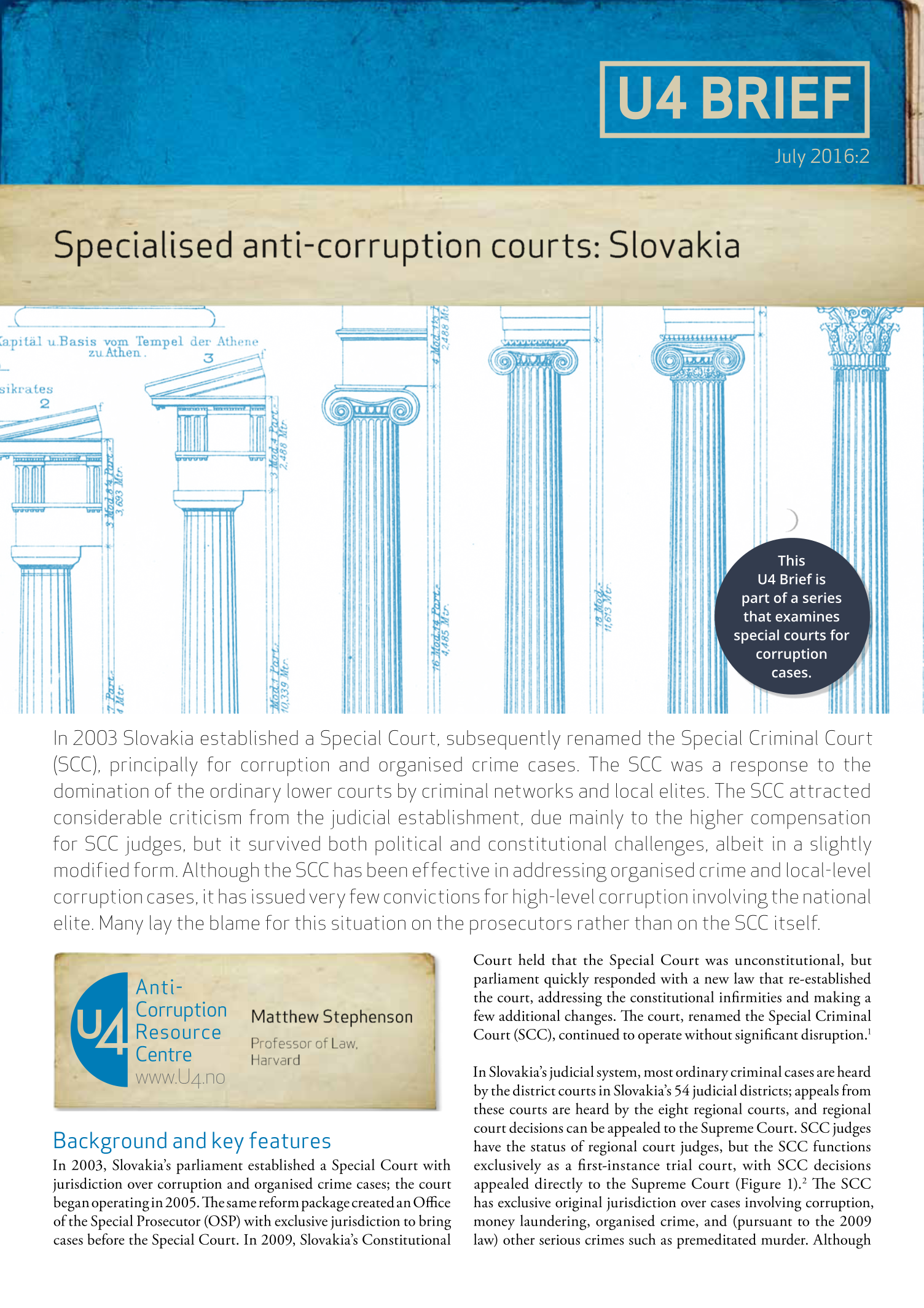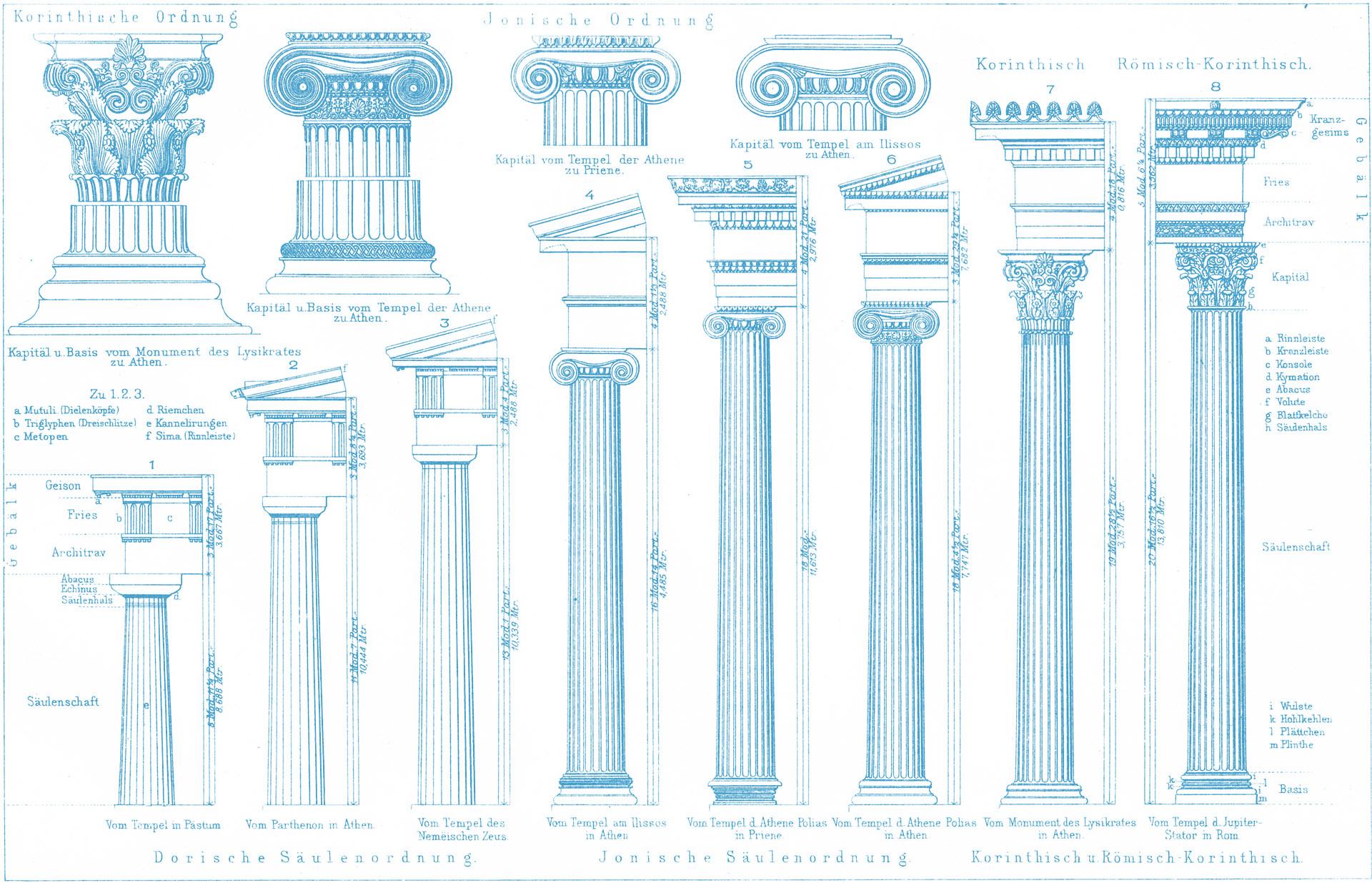U4 Brief
Specialised anti-corruption courts: Slovakia
In 2003 Slovakia established a Special Court, subsequently renamed the Special Criminal Court (SCC), principally for corruption and organised crime cases. The SCC was a response to the domination of the ordinary lower courts by criminal networks and local elites. The SCC attracted considerable criticism from the judicial establishment, due mainly to the higher compensation for SCC judges, but it survived both political and constitutional challenges, albeit in a slightly modified form. Although the SCC has been effective in addressing organised crime and local-level corruption cases, it has issued very few convictions for high-level corruption involving the national elite. Many lay the blame for this situation on the prosecutors rather than on the SCC itself.
This brief is part of a series of case studies on special anti-corruption courts. The case studies discuss the court’s design and whether they have lived up to the expectations that led to their establishment. We draw lessons for their particular country context, but also specialisation of courts more generally.
These case studies will be complemented by a forthcoming issue paper discussing and comparing specialised anti-corruption courts around the world.

Cite this publication
Stephenson, M.; (2016) Specialised anti-corruption courts: Slovakia. Bergen: U4 Anti-Corruption Resource Centre, Chr. Michelsen Institute (U4 Brief 2016:2)
Disclaimer
All views in this text are the author(s)’, and may differ from the U4 partner agencies’ policies.
This work is licenced under a Creative Commons Attribution-NonCommercial-NoDerivatives 4.0 International licence (CC BY-NC-ND 4.0)


